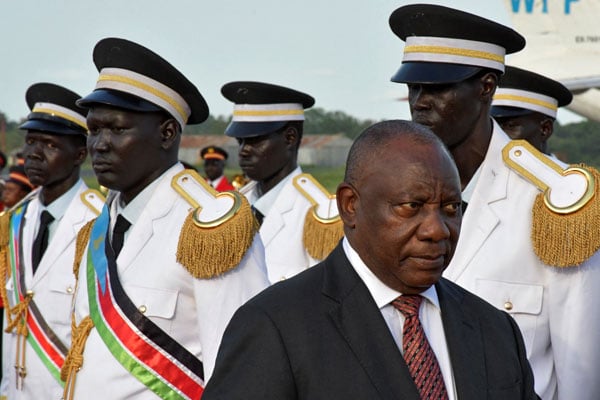Are expulsions best way of punishing errant students?

Expelling students is increasingly being questioned on how effective it is as a form of enforcing discipline. file pHOTO
What you need to know:
The several cases of revenge by expelled students against their schools raises the question of whether suspensions or expulsions are the best way to discipline students.
A few years ago students of a secondary school in Kasese were horrified when an improvised explosive was hurled at them during a morning assembly, killing one and injuring some. The device, it was suspected, was thrown by some students that had been suspended from the school a week earlier.
The incident of the 10 incinerated bodies of students no one could identify after brutally meeting their death in an inferno that razed a dormitory at St Bernard’s Secondary School Maanya in Kifamba Sub-county, Rakai District last year was partly blamed on expelled students.
Suspension and expulsions are used in Ugandan schools to counter students’ problematic behaviour. Students are most often expelled for drug abuse, strikes, early pregnancies, absenteeism, assault, bullying, forms of theft, and verbal abuse of teachers, among other offences.
Resident evil
According to Joseph Segawa, a teacher at Lakeside College Luzira, enforcement of moral values and discipline has declined with privatisation of education.
“Private schools depend entirely on the revenue generated from students’ fees. Therefore, the number of students enrolled largely determines the continuity of the school. Students are given liberty in order to attract a high number of students. Most students expelled from government-aided schools thus usually get admission in private ones,” Segawa says. To him, neglecting discipline enforcement contradicts the national educational objective of promoting moral and ethical values as outlined in the Government White Paper on Education Policy Review (1992).
Not the best strategy
Suspension refers to when a student is sent home temporarily for an offence. Expulsion is a permanent decision.
Hajara Ddembe, who works in the Physical Education and Sports department, reasons that schools must fulfill their legal responsibility of providing education. “A decision to suspend or expel should be effected as the only option left,” she says.
James Mugerwa who had his daughter suspended for two weeks last year says suspension is not corrective. “She enjoyed the punishment because she got a chance to watch TV all the time. I think caning would have served better,” Mugerwa said.
Paradox
But Sam Mukasa, a Mathematics and Physics teacher and the vice chairman of Buddo Secondary School disciplinary committee, noted that expulsion is unavoidable because many schools were not equipped with the resources, expertise and assistance to provide support to undisciplined students.
“Internal punishments leave the parent out and yet when a child is suspended, the parent is involved in the correction process. It would be ideal that schools have professional counsellors but that is not manageable. They have to turn to teachers, some of whom are inexperienced,” he notes.
He adds that the world is full of rules and regulations and for schools to shape responsible citizens with productive adult life, punishments must be applied. But suspensions and expulsions raise serious ethical questions about how the school system accommodates every student. Universal education allows everyone in school.
Yet some conditions attached to a child’s return to school end up punishing parents.
For instance, the school rules and regulations of Seroma Christian High School, require a student to return with a roll of barbed wire, after a three-week suspension on charges of escaping from the school.
What can be done?
Children with behavioural needs may need to receive more intensive, specialist intervention, focused on developing appropriate communication, social skills and emotional regulation.
Psychologist Richard Balikoowa of Makerere University stresses that understanding the environment is crucial to understanding children’s behaviour.
While appearing on NTV Akawungeezi last year, he said: “The solution is not to react to the problem but the cause. Teachers can be helped to gather and record data about when and where problematic behaviour occurs to gauge what may be driving the behaviour,” he said.
Schools under threat?
Uganda’s society is adopting litigation so quickly. Children suspended from school are going to court. Sylvia Nakitto sued St Lawrence Citizens High School (Creamland campus Nabbingo) in 2017 challenging her indefinite suspension. Court re-admitted her in school. Nakitto had been found smelling alcohol during a school dance. The school head teacher convinced court that Nakitto was undisciplined and had been deemed unfit to interact with other students. Judge Masalu Musene ruled that his decision was not whether or not the decision to suspend Nakitto was right or wrong. “The concern of this court is whether proper process and procedure was followed leading to the indefinite suspension,” he ruled.




